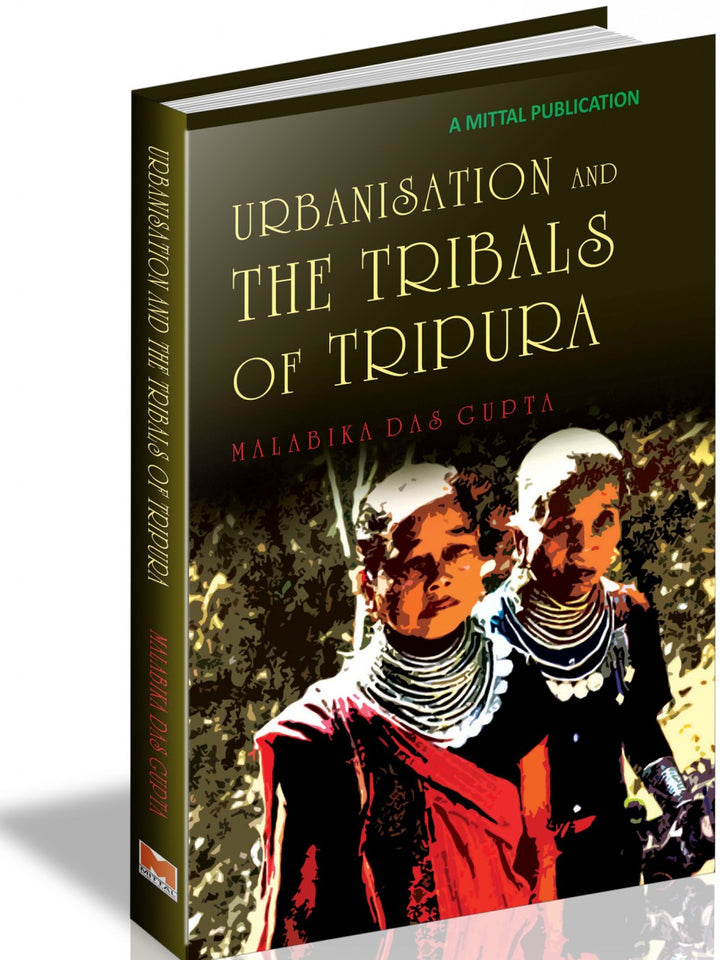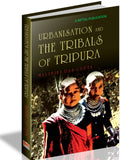Urbanisation and the Tribals of Tripura
Regular price
Rs. 210.00
The book begins with an analysis of Census data on Tripura. The data show that though urbanisation took place in the state, albeit at a slower pace than that in India as a whole during the period from 1961 to 2001, the Scheduled Tribes lagged behind the rest of the population of the state in becoming urbanized. The percentage of Scheduled Tribes in the urban areas of Tripura was much lower than that of the rest of the population. The percentage of the Scheduled Tribes in the urban population of the state was also much lower than their percentage in the total population of the state so that the Scheduled Tribes were under represented in the urban population of Tripura in every decade from 1961 to 2001. The town level data for the state also show that in all the towns of the state throughout the period during which they existed, the Scheduled Tribes formed a very small percentage of the population of the towns. However, there was a rise in the percentage of the Scheduled Tribe population in the urban population of the state and in both Agartala and Khowai, the two towns of the state that had the largest Scheduled Tribe population in the state between 1991 and 2001.The book then examines why the percentage of Scheduled tribes in the urban population of Tripura was lower than that of the rest of the population of the state and why this percentage rose in Tripura in general and in Agartala and Khowai between 1991 and 2001. Based on the observed trend in the process of urbanization and the changes that have taken place in the characteristics of the Scheduled Tribe population of the state, it examines whether the Scheduled Tribe population of urban Tripura is likely to be larger or smaller in future. It also examines whether the Scheduled Tribe population of urban Tripura can be made to derive more benefits from urbanisation if they are likely to form a larger percentage of the urban population of Tripura in future.The book will certainly be useful to scholars carrying out similar studies in other parts of India.
Malabika Das Gupta (b. 1943) did her B.A.(Honours) in Economics and Political Science from Presidency College, Kolkata, M.A. in Economics from Jadavpur University and Ph.D. in Economics from Dalhousie University, Canada, where she was an I.W. Killam Scholar. She has taught in Miranda House and Tripura University and was an Associate at the Indian Institute of Advanced Study, Shimla. She was a Senior Fellow of the Indian Council of Social Science Research, New Delhi from 1997-1999 and from 2007-2009. She was awarded an Australian Leadership Awards Fellowship tenable at Monash University, Melboune, Australia in 2010.At present she is an Honorary Associate of the Centre for Urban Economic Studies, Department of Economics,University of Calcutta and an Honorary Visiting Professor of Economics at the Institute of Development Studies Kolkata.She has undertaken research projects funded by the ICSSR, The Asiatic Society, Kolkata, the National Commission for Women, Ministry of Forest and Environment and the Department of Land Reforms, Ministry of Agriculture, Government of India and has conducted various research studies for the Government of Tripura.She has authored and edited several books and her articles have appeared in several national and international journals and edited books. Most of her research papers deal with issues related to the tribals of the northeast in general and Tripura in particular.
Guaranteed Safe Checkout





